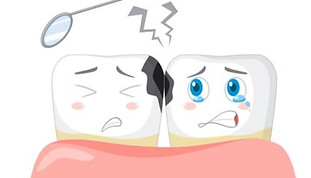Wisdom teeth, though often viewed as a rite of passage into adulthood, can pose significant dental challenges if left unaddressed. Understanding the complications associated with wisdom teeth is essential for maintaining optimal oral health.
What Is A Wisdom Tooth?

Wisdom tooth, or third molars, are the last set of molars that typically emerge in late adolescence or early adulthood, usually between the ages of 17 and 25.
While they were helpful for our ancestors, who required extra teeth for chewing tough vegetation, these teeth often serve little purpose now.
What are the Common Issues Associated with Wisdom Teeth?
Unfortunately, wisdom teeth can become problematic. The most common issues include:



Impaction
Wisdom teeth often lack the space needed to emerge correctly, causes impaction, gum swelling, infection, and other complications.
Decay
The misaligned teeth often causes food trap between the wisdom tooth and it's adjacent tooth, which often causes decay on both teeth.
Infection
Partially erupted wisdom teeth can create an entry point for bacteria, causes infection and other complications.
Why is Wisdom Tooth Surgery Necessary?
Reasons for Wisdom Tooth Removal Surgical intervention is frequently required due to:



Pain
Chronic pain can be an indicator of underlying problems.
Infection
Wisdom teeth are prone to infections, which can escalate into more severe health concerns.
Damage to Adjacent Teeth
Impacted wisdom teeth can exert pressure on neighbouring teeth, causing potential damage.
What are the Symptoms that Indicate the Need for Wisdom Tooth Surgery?
Signs that may warrant extraction include:

Persistent Pain
Ongoing pain in the jaw, gums, or teeth.

Swelling and Infection
Swelling of the gums, cheeks, or face, accompanied by infection.

Difficulty Opening the Mouth
Limited mobility of the jaw due to impacted teeth.

Bad Breath
Persistent bad breath despite good oral hygiene.
What are the Types of Extractions?
Types of Extractions
Description
This is performed when the tooth is fully-erupted and easily accessible. It involves the use of local anaesthesia and basic dental instruments.
Simple Extractions
Surgical Extractions
This is required when the tooth is impacted or partially erupted. It involves making an incision in the gum tissue and sometimes removal of bone to access the impacted tooth.
Pre-Surgery Preparation and Post-Surgery Care Instructions
Surgery Care
Instructions
Pre-Surgery Preparations
Patients are advised to avoid eating heavy meals before the procedure and to arrange for someone to drive them home afterward.
Post-Surgery Care
Patients should follow a soft food diet, avoid strenuous activities, and take prescribed pain medication as directed. It is also important to keep the extraction site clean to prevent infection.
Common Questions about Wisdom Tooth Surgery and Extractions
Is Wisdom Tooth Surgery Painful?
While some discomfort may be experienced, anaesthesia and pain management techniques minimise pain during and after the procedure.

